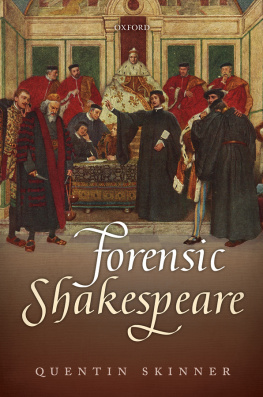William Shakespeare - Alls Wel that ends Well
Here you can read online William Shakespeare - Alls Wel that ends Well full text of the book (entire story) in english for free. Download pdf and epub, get meaning, cover and reviews about this ebook. genre: Prose. Description of the work, (preface) as well as reviews are available. Best literature library LitArk.com created for fans of good reading and offers a wide selection of genres:
Romance novel
Science fiction
Adventure
Detective
Science
History
Home and family
Prose
Art
Politics
Computer
Non-fiction
Religion
Business
Children
Humor
Choose a favorite category and find really read worthwhile books. Enjoy immersion in the world of imagination, feel the emotions of the characters or learn something new for yourself, make an fascinating discovery.

- Book:Alls Wel that ends Well
- Author:
- Genre:
- Rating:4 / 5
- Favourites:Add to favourites
- Your mark:
- 80
- 1
- 2
- 3
- 4
- 5
Alls Wel that ends Well: summary, description and annotation
We offer to read an annotation, description, summary or preface (depends on what the author of the book "Alls Wel that ends Well" wrote himself). If you haven't found the necessary information about the book — write in the comments, we will try to find it.
Alls Wel that ends Well — read online for free the complete book (whole text) full work
Below is the text of the book, divided by pages. System saving the place of the last page read, allows you to conveniently read the book "Alls Wel that ends Well" online for free, without having to search again every time where you left off. Put a bookmark, and you can go to the page where you finished reading at any time.
Font size:
Interval:
Bookmark:
ALLS WELL THAT ENDS WELL
Dramatis Personae
SCENE:
ACT I.
SCENE 1.
Enter BERTRAM, the COUNTESS OF ROUSILLON, HELENA, and LAFEU, all in black
COUNTESS. In delivering my son from me, I bury a second husband.
BERTRAM. And I in going, madam, weep o'er my father's death anew;
but I must attend his Majesty's command, to whom I am now in
ward, evermore in subjection.
LAFEU. You shall find of the King a husband, madam; you, sir, a
father. He that so generally is at all times good must of
necessity hold his virtue to you, whose worthiness would stir it
up where it wanted, rather than lack it where there is such
abundance.
COUNTESS. What hope is there of his Majesty's amendment?
LAFEU. He hath abandon'd his physicians, madam; under whose
practices he hath persecuted time with hope, and finds no other
advantage in the process but only the losing of hope by time.
COUNTESS. This young gentlewoman had a father O, that 'had,' how
sad a passage 'tis!-whose skill was almost as great as his
honesty; had it stretch'd so far, would have made nature
immortal, and death should have play for lack of work. Would, for
the King's sake, he were living! I think it would be the death of
the King's disease.
LAFEU. How call'd you the man you speak of, madam?
COUNTESS. He was famous, sir, in his profession, and it was his
great right to be so Gerard de Narbon.
LAFEU. He was excellent indeed, madam; the King very lately spoke
of him admiringly and mourningly; he was skilful enough to have
liv'd still, if knowledge could be set up against mortality.
BERTRAM. What is it, my good lord, the King languishes of?
LAFEU. A fistula, my lord.
BERTRAM. I heard not of it before.
LAFEU. I would it were not notorious. Was this gentlewoman the
daughter of Gerard de Narbon?
COUNTESS. His sole child, my lord, and bequeathed to my
overlooking. I have those hopes of her good that her education
promises; her dispositions she inherits, which makes fair gifts
fairer; for where an unclean mind carries virtuous qualities,
there commendations go with pity-they are virtues and traitors
too. In her they are the better for their simpleness; she derives
her honesty, and achieves her goodness.
LAFEU. Your commendations, madam, get from her tears.
COUNTESS. 'Tis the best brine a maiden can season her praise in.
The remembrance of her father never approaches her heart but the
tyranny of her sorrows takes all livelihood from her cheek. No
more of this, Helena; go to, no more, lest it be rather thought
you affect a sorrow than to have-
HELENA. I do affect a sorrow indeed, but I have it too.
LAFEU. Moderate lamentation is the right of the dead: excessive
grief the enemy to the living.
COUNTESS. If the living be enemy to the grief, the excess makes it
soon mortal.
BERTRAM. Madam, I desire your holy wishes.
LAFEU. How understand we that?
COUNTESS. Be thou blest, Bertram, and succeed thy father
In manners, as in shape! Thy blood and virtue
Contend for empire in thee, and thy goodness
Share with thy birthright! Love all, trust a few,
Do wrong to none; be able for thine enemy
Rather in power than use, and keep thy friend
Under thy own life's key; be check'd for silence,
But never tax'd for speech. What heaven more will,
That thee may furnish, and my prayers pluck down,
Fall on thy head! Farewell. My lord,
'Tis an unseason'd courtier; good my lord,
Advise him.
LAFEU. He cannot want the best
That shall attend his love.
COUNTESS. Heaven bless him! Farewell, Bertram. Exit
BERTRAM. The best wishes that can be forg'd in your thoughts be
servants to you! [To HELENA] Be comfortable to my mother, your
mistress, and make much of her.
LAFEU. Farewell, pretty lady; you must hold the credit of your
father. Exeunt BERTRAM and LAFEU
HELENA. O, were that all! I think not on my father;
And these great tears grace his remembrance more
Than those I shed for him. What was he like?
I have forgot him; my imagination
Carries no favour in't but Bertram's.
I am undone; there is no living, none,
If Bertram be away. 'Twere all one
That I should love a bright particular star
And think to wed it, he is so above me.
In his bright radiance and collateral light
Must I be comforted, not in his sphere.
Th' ambition in my love thus plagues itself:
The hind that would be mated by the lion
Must die for love. 'Twas pretty, though a plague,
To see him every hour; to sit and draw
His arched brows, his hawking eye, his curls,
In our heart's table-heart too capable
Of every line and trick of his sweet favour.
But now he's gone, and my idolatrous fancy
Must sanctify his relics. Who comes here?
Enter PAROLLES[Aside] One that goes with him. I love him for his sake;
And yet I know him a notorious liar,
Think him a great way fool, solely a coward;
Yet these fix'd evils sit so fit in him
That they take place when virtue's steely bones
Looks bleak i' th' cold wind; withal, full oft we see
Cold wisdom waiting on superfluous folly.
PAROLLES. Save you, fair queen!
HELENA. And you, monarch!
PAROLLES. No.
HELENA. And no.
PAROLLES. Are you meditating on virginity?
HELENA. Ay. You have some stain of soldier in you; let me ask you a
question. Man is enemy to virginity; how may we barricado it
against him?
PAROLLES. Keep him out.
HELENA. But he assails; and our virginity, though valiant in the
defence, yet is weak. Unfold to us some warlike resistance.
PAROLLES. There is none. Man, setting down before you, will
undermine you and blow you up.
HELENA. Bless our poor virginity from underminers and blowers-up!
Is there no military policy how virgins might blow up men?
PAROLLES. Virginity being blown down, man will quicklier be blown
up; marry, in blowing him down again, with the breach yourselves
made, you lose your city. It is not politic in the commonwealth
of nature to preserve virginity. Loss of virginity is rational
increase; and there was never virgin got till virginity was first
lost. That you were made of is metal to make virgins. Virginity
by being once lost may be ten times found; by being ever kept, it
is ever lost. 'Tis too cold a companion; away with't.
HELENA. I will stand for 't a little, though therefore I die a
virgin.
PAROLLES. There's little can be said in 't; 'tis against the rule
of nature. To speak on the part of virginity is to accuse your
mothers; which is most infallible disobedience. He that hangs
himself is a virgin; virginity murders itself, and should be
buried in highways, out of all sanctified limit, as a desperate
offendress against nature. Virginity breeds mites, much like a
cheese; consumes itself to the very paring, and so dies with
Font size:
Interval:
Bookmark:
Similar books «Alls Wel that ends Well»
Look at similar books to Alls Wel that ends Well. We have selected literature similar in name and meaning in the hope of providing readers with more options to find new, interesting, not yet read works.
Discussion, reviews of the book Alls Wel that ends Well and just readers' own opinions. Leave your comments, write what you think about the work, its meaning or the main characters. Specify what exactly you liked and what you didn't like, and why you think so.











